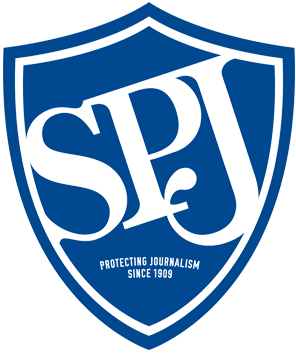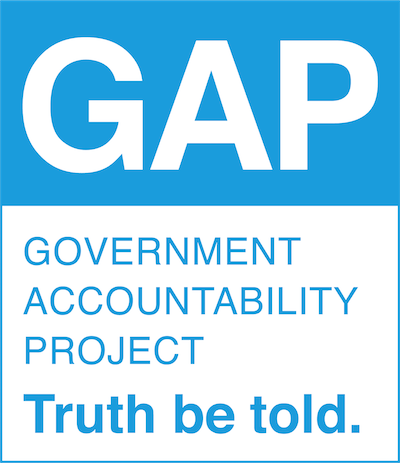The Whistleblower Project


– Introduction
– A Call to Action: Whistleblower Protection Legislation
If passed, these laws would help improve protection for whistleblowers.
Whistleblower Basics
– The Law and Whistleblowing
Deciphering the laws dealing with whistleblowing is complicated, but we hope this will help.
– Whistleblowers and Retaliation
Those who expose wrongdoing can face job loss, lawsuits or even prison.
– Leaking vs. Whistleblowing
Can you spot the difference between a leaker and a whistleblower? It may be trickier than you think.
– Nine Organizations That Work With and Help Whistleblowers
Best Practices for Journalists
– Source Protection and Anonymity for Whistleblowers
In political journalism, there’s a debate over allowing sources to talk to you off the record, in order to keep the access pipeline flowing. Anonymity and the ethics of it can also be complicated in situations beyond scoring political points.
– Whistleblowers and Reporters: Trust
Here are some best practices to follow when working with a whistleblower on a story.
– Technology Can Help Whistleblowers Communicate Anonymously
The ways that reporters and whistleblowers communicate is evolving. The introduction of secure communications has become necessary as journalists try to protect their sources, all the while trying to guarantee the information is secure.
– Anonymity: Not Always the Possible, Nor Always the Best, Strategy
Many whistleblowers want to disclose information about trouble in their workplaces while maintaining their anonymity. However, the vast majority of whistleblowers — more than 95 percent — try to solve their problems internally first.
– When Working with Whistleblowers, Same Ethical Journalism Principles Apply
Government Accountability Project’s “Working with Whistleblowers: A Guide for Journalists” details best practices for working with whistleblowers.
Voices
– Kathryn Foxhall: Good whistleblowing simply needs free speech
During the last 25 years it’s become an accepted norm for government, business, nonprofits and other organizations to prohibit employees to ever communicate with journalists without notifying and being overseen by the authorities, often public information officers. The restrictions are intense, highly effective censorship. The Society of Professional Journalists has made opposing them a priority.
– Jesselyn Radack: Challenges in Defending National Security Whistleblowers
War crimes, mass surveillance, torture: some of the biggest stories in modern history relied on whistleblowers in national security and intelligence agencies. They came forward at great risk to expose the truth.
– Nick Schwellenbach: The Modern Politics of American Whistleblowing
Insiders Valued More Highly in U.S. Society, But Still Face Perils.
 Joel Clement directed the Department of Interior’s Office of Policy Analysis and assessed the impacts of climate change on Native Arctic communities. In June 2017, Clement and dozens of senior officials were involuntarily reassigned as part of a larger systematic effort within President Donald Trump’s administration to marginalize employees whose work focuses on climate change and other environmental issues.
Get the full details of Joel's story, along with 24 other times whistleblowers changed history.
Joel Clement directed the Department of Interior’s Office of Policy Analysis and assessed the impacts of climate change on Native Arctic communities. In June 2017, Clement and dozens of senior officials were involuntarily reassigned as part of a larger systematic effort within President Donald Trump’s administration to marginalize employees whose work focuses on climate change and other environmental issues.
Get the full details of Joel's story, along with 24 other times whistleblowers changed history.
Features
– Mary Willingham: An Attempt To Make The College Athletic System Better For Athletes
Mary Willingham talks about why she spoke out about the treatment of college athletes at North Carolina and why — despite death threats from college sports enthusiasts — she would do it again.
– Megan Wood: Reporting with Purpose
Megan Wood talks about why she looked into San Diego Christian College’s missing $20 million in expenses and how whistleblowers make a difference in their communities.
– Richard Bowen: Blowing the Whistle on Defective Mortgages
While evaluating $90 billion of mortgages Citigroup was buying from Countrywide and other lenders, former Citigroup vice president Richard Bowen tried to warn company leaders and board members about the rise in defective mortgages. In 2010 he testified before the Financial Crisis Inquiry Commission. Here, in Bowen’s words, is what happened next.
– Craig Watts: Typical American Farmer Risks Career to Reveal Inhumane Conditions at Chicken Farms
Craig Watts was a typical American farmer with three kids, two dogs, and a barn full of chickens. That all changed though when he decided to show the public the conditions chickens, sold by Perdue farms, were being raised in.
Credits
Meet the Project Team
Felt informed the press while trying to safeguard the bureau’s investigation of the Watergate break-in. Felt, who died in 2008, was a whistleblower. The story of Watergate could not have been told without his assistance.
In the culture of modern political journalism, the words leaker and whistleblower have become synonymous in the attempt to shine a light on political happenings. However, in an essay for the online magazine Slate, Dana Gold, Government Accountability Project (GAP) director of education, said the usage of those words may be misleading.
GAP describes leakers as an anonymous source who discloses unauthorized — often sensitive and sometimes classified — information about the inner-workings of the government agency or corporation they work for. Whistleblowers, meanwhile, are government or corporate workers who release information that shows serious wrongdoing, mismanagement, waste or other abuses of public trust.
“When whistleblowers are labeled leakers, it’s pejorative, designed to delegitimize both the source and the information,” Gold wrote. “It takes away their moral high ground and disguises the fact their disclosures were made to serve the public interest rather than fuel political gossip.”
Gold’s argument stems from recent debate over whether or not James Comey, the former FBI director, was a leaker, after Comey asked a friend of his to give a memo about discussions Comey had with President Donald Trump to a reporter with The New York Times.
Trump claimed Comey was a leaker. But Gold argued the opposite, and added that there is frequent mislabeling in journalism between leakers and whistleblowers. Gold encourages journalists to stand up for whistleblowers.
“By continuing to mislabel whistleblowers, journalists may be inadvertently chilling vulnerable employees who might otherwise fight corruption and try to help restore us to a functioning constitutional democracy,” Gold wrote.
Gold notes that most whistleblowers do not work in intelligence or national security, where information is classified.
The problem for whistleblowers revealing classified information is that they have limited avenues for legally-protected disclosure, be it Congress or an agency’s Inspector General’s office.
Because of weak internal protections and avenues, disclosure to media outlets like The New York Times, The Washington Post or ProPublica becomes a more appealing option for a desperate whistleblower trying to make the public and leaders aware of what is going on — despite possible repercussions.
For example, in the Espionage Act, there is no public interest defense — something that some, including journalist Mark Hertsgaard and a group with PEN America, want included for the sake of holding public officials and government organizations accountable.
While the debate remains split on how people view leakers and whistleblowers, their role in helping journalists hold the powerful accountable is unprecedented and comes with risks. The question that remains is whether more of them will come forward; there are stories that remain to be told.
Editor’s note: In addition to his work on the Freedom of Information Committee, Alex Veeneman is a member of SPJ’s Ethics Committee.
Next: Nine Organizations That Work With and Help Whistleblowers